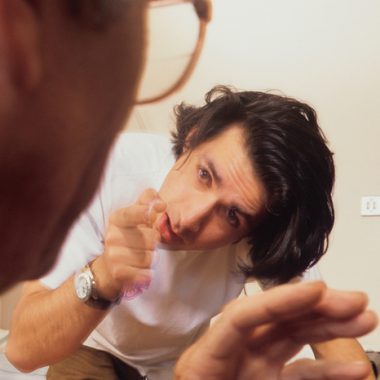Sad and confrontational patients ‘key source of stress’ for GPs

Emotionally draining patient consultations are a key factor contributing to GP stress and burnout, a study has found.
The research, carried out by researchers from the University of Birmingham, looked to understand the sources of GP stress and distress, as well as the barriers and facilitators to getting help.
They found that the reason behind high levels of GP burnout could not solely be put down to rising workloads.
Encounters with sad or confrontational patients, dysfunctional working relationships, unsupportive or bullying colleagues, the fear of making mistakes, complaints and inspections also caused stress.
The findings, published in the BMJ, were based on in-depth interviews with 47 GPs in England, including some who had experienced burnout or mental distress.
They come as the NHS England-funded GP mental health service was inundated with demand upon its launch one year ago.
Researchers said: ‘The sources of stress and distress cannot solely be attributed to increases in workload and occupational stress linked to the work role demands of being a GP.
‘Doctors, including GPs, are not invulnerable to the clinical and emotional demands of their work nor the effects of divisive work cultures – culture change and access to informal and formal support is therefore crucial in enabling GPs to do their job effectively and to stay well.’
They said GPs should have ‘a safe space’ to deal with these causes of stress.
Doctors who got support from colleagues fared better, the research found.
Dealing with emotional demands of patients can mount up.
One doctor explained: ‘People bring in and they park with you their problems and their sadnesses, and they feel better for that and you feel worse.’
Doctors also confided that it was distressing to deal with confrontational patients.
One salaried GP said: ‘I’ve had situations where I’ve felt say physically threatened and had to ask someone to leave.’
They said that collegial support, talking about feelings of vulnerability and illness and open communication channels help GPs feel less isolated and able to cope better.
One respondent said that there was no time for reflection at her practice following a colleague’s suicide after a bout of depression.
She said it was: ‘Really devastating to the practice. But it was a bit like, ‘Well, we’ve just got to carry on. We’ve got this job to do,’ and there was no time to (pause) even really acknowledge it, you know, beyond having the usual things like funerals and stuff.’
Many interviewees said they felt isolated which made it harder to get support. One salaried GP said: ‘You don’t really leave your room or talk to many other people.’
Doctors also reported stress from ‘internal politics’ at their practice, or a feeling of being ‘over-ruled’ by colleagues.
Being at the brunt of bullying by colleagues or partners was ‘a key source of distress’ for some interviewees.
One disclosed: ‘This is like an abusive relationship, where I’m unwell and I’m being shouted at at work. I hate coming into work.’
Researchers called for medical training to tackle the ‘culture of invulnerability’ so doctors felt able to discuss feelings to protect their mental health.
Dr Clare Gerada, the medical director of the GP Health Service and who helped with recruitment to the study, said: ‘The cause of distress is fundamentally that we are unable to meet the demands.’
She added that it is because ‘GPs care so much’ that they ‘are trying to constantly deliver and make up for a system that’s undeliverable and pushing themselves way beyond what’s healthy for them’.
Regarding colleague support, she added: ‘When you are stressed and have got too much work the first thing that goes is the time to talk to people, the coffee break, the meeting colleagues for lunch.’
Dr Robert Morley, who is a member of the BMA’s GP Commitee and chair of Birmingham LMC, said doctors do need space to deal with the causes of stress, adding: ‘There is absolutely no slack in doctors’ working day.
‘The underlying issue is the unsustainable workload and the stresses of the job.’
GP support services
More than one in four GPs regularly work more than 50 hours a week, a Pulse investigation revealed last year.
An investigation by Pulse publisher Cogora found that two thirds of GPs experienced abuse from their patients and a recent Pulse survey revealed that one in seven GPs has turned to drunk or drugs to cope with stress.
The GP Health Service, commissioned by NHS England, had a ‘rush’ of GPs contact it when it launched last January, with 981 GPs referring themselves in its first ten months.
In November the BMA offered GPs a mindfulness app to encourage them to take time out from the winter crisis.
And a peer mentoring scheme in the East Midlands has helped nearly 100 burnout-beset doctors to stay in the profession.
Pulse July survey
Take our July 2025 survey to potentially win £1.000 worth of tokens












